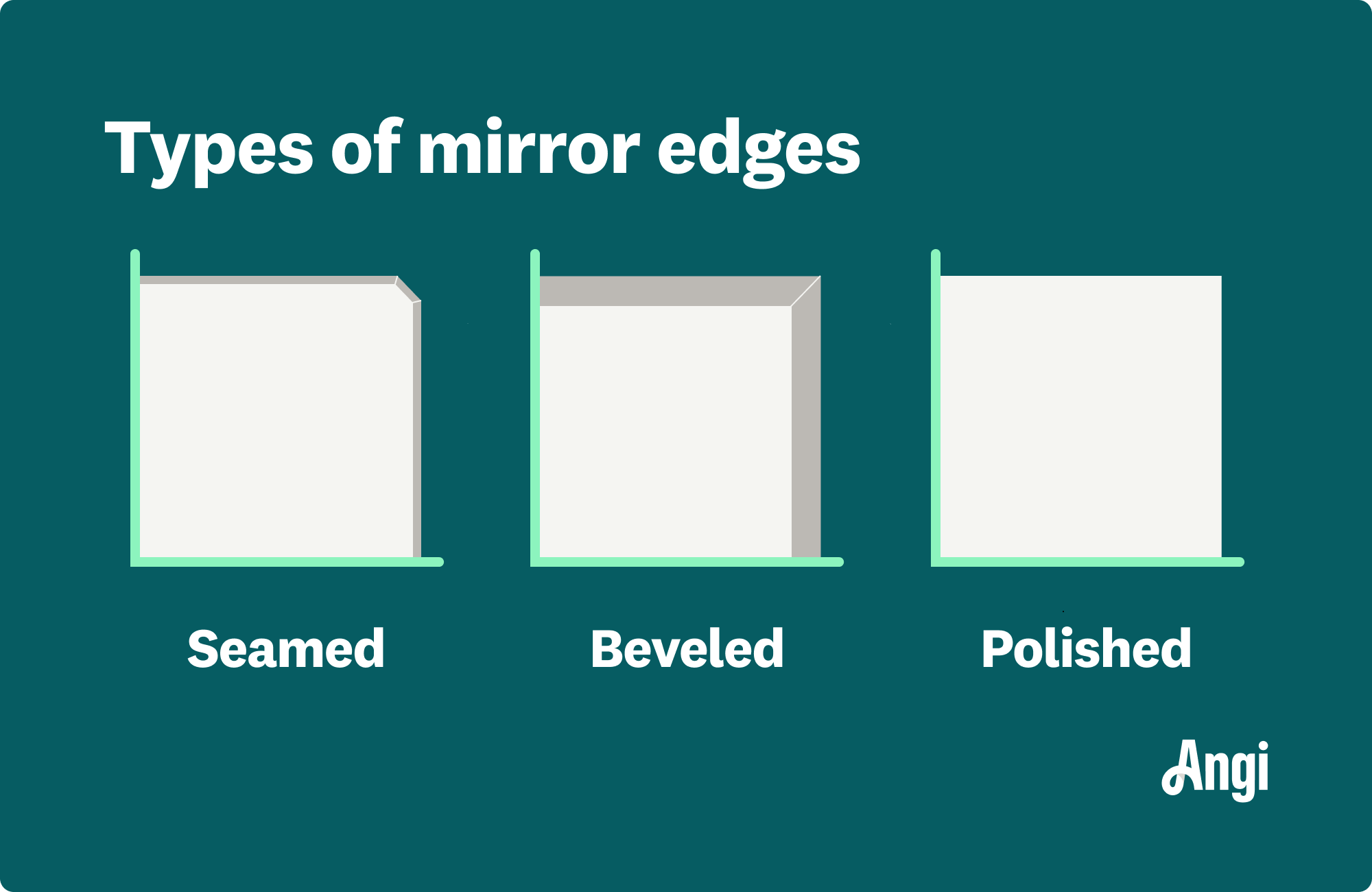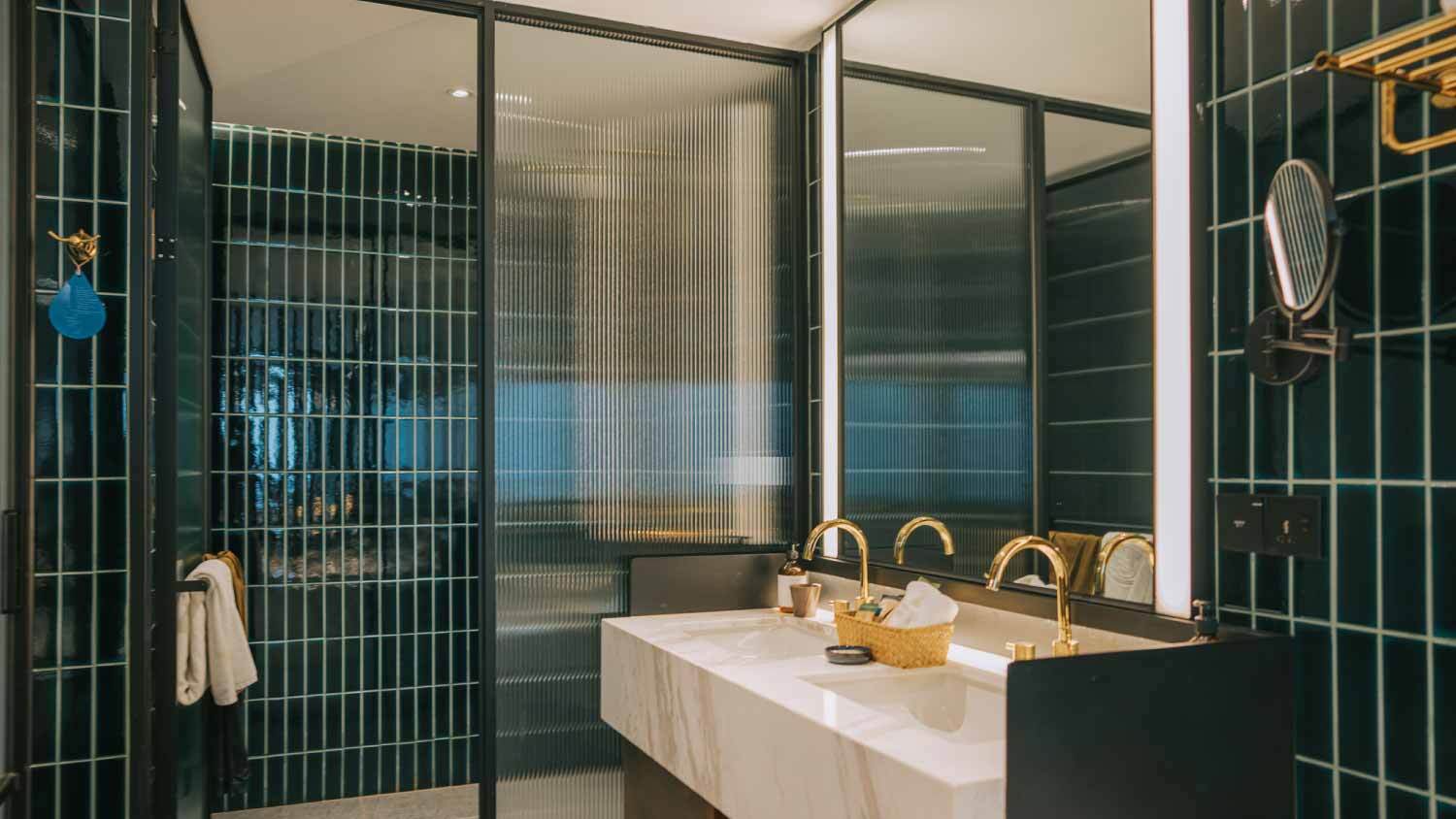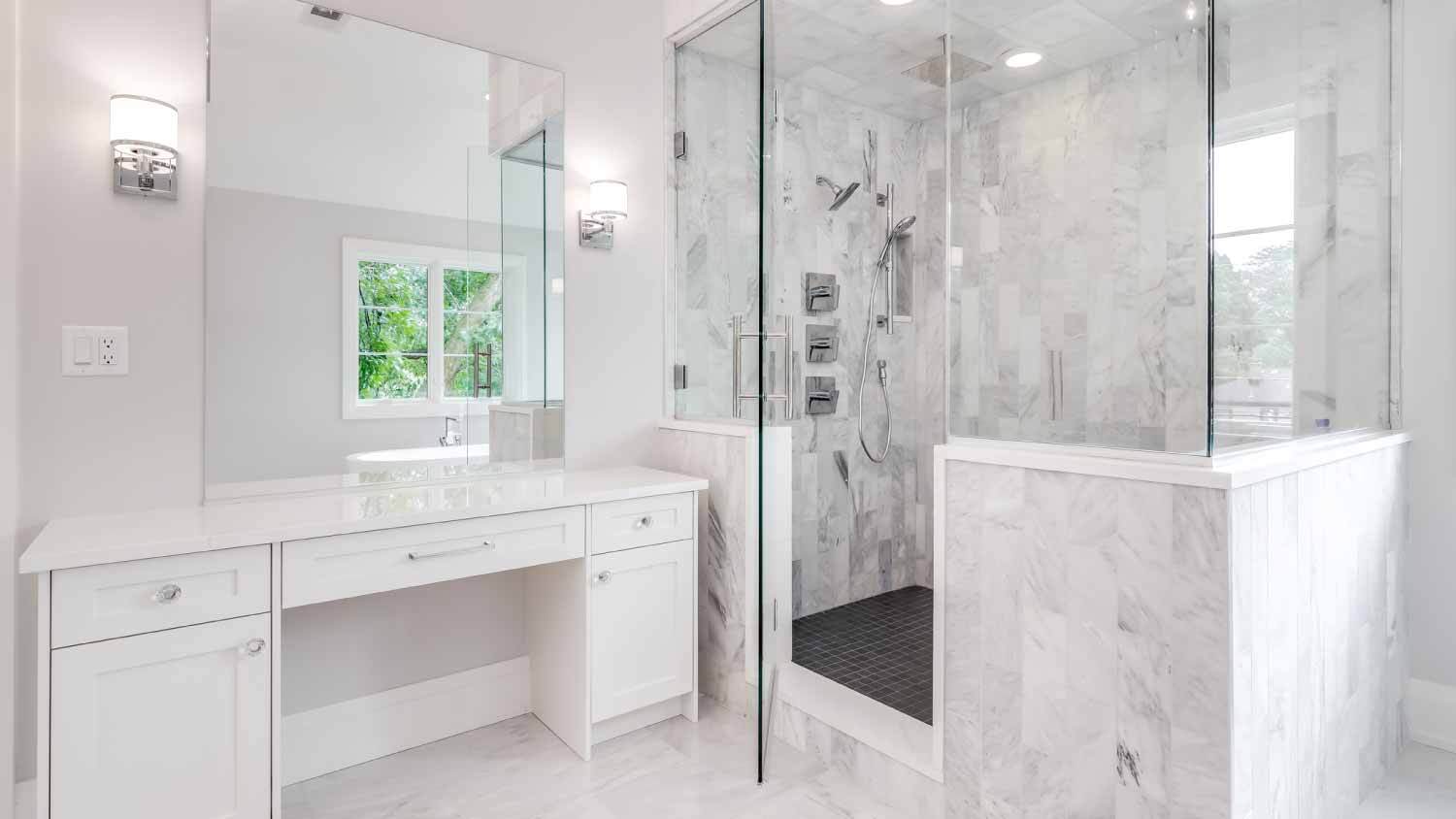How Much Does a Custom Cut Mirror Cost?
The cost of a custom mirror is $340 on average, but it can cost between $191 and $500 depending on the size, shape, and thickness of mirror you choose.


Custom mirror cutting costs $30 to $75 on average.
Custom mirror framing costs $80 to $250 on average.
Basic factors affecting your custom cut mirror’s price include cutting, framing, sizes, edging, thickness, and labor.
Professional mirror installers typically charge $30 to $75 per hour for mirror cutting and an additional $50 to $150 for installation.
Mirrors can make your home look larger and brighter while reflecting your unique style sensibility, so they're a great addition to any interior design. If your home has unique space constraints or there's a particular mirror style you're after, you can have a custom mirror created. Custom mirror prices vary by several factors, but you can plan to spend around $191 to $500, depending on the customizations. Find out how much custom mirrors cost based on factors like size, customization type, and whether you hire a pro to do it.
Custom Cut Mirror Cost Factors

There are many types of mirror customizations, from adding a custom frame to incorporating beveled edges. And the customizations you choose will affect the cost.
| Custom Factor | Cost Range |
|---|---|
| Cutting | $30–$75 |
| Framing | $80–$250 |
| Thickness | $50–$100 |
| Edges | $80–$200 |
Custom Mirror Cutting
It usually costs $30 to $75 to custom-cut a mirror into a standard shape, like a circle, oval, or rectangle. Circles and ovals are trickier to cut than rectangles, so they'll cost closer to the higher end of that range. You’re not limited to these basic shapes, but more complex designs that require multiple edges and cuts can cost $100 or more.
If you don't want to hire someone to cut the glass for you, then you can purchase a glass cutter for $10 to $20 and cut the glass yourself—if you have the skills and feel comfortable doing so.
Custom Mirror Framing
Mirror framing can cost anywhere from $80 to $250 or more, depending on the mirror's size and shape. A 36-inch square mirror usually costs around $150 to $200 to frame professionally.
You can save some money by framing the mirror yourself with a DIY kit. Mirror framing kits are available at many home improvement stores and usually cost around $50 to $100, depending on the size and materials you choose.
Custom Mirror Size
The size of your mirror also affects how much customization will cost, as larger mirrors naturally cost more to cut or frame. For example, an 18-by-18 mirror with 1/4 inch thickness and beveled edge costs around $65 to $85. The same mirror at 36-by-36 can cost anywhere between $160 and $200.
Custom Mirror Thickness
Most mirrors are made with 1/4-, 3/16-, or 1/8-inch thick glass. Square wall mirrors larger than 36 inches should be at least 1/4 inch thick for safety reasons. Square mirrors less than 36 inches are typically safe to use in any of the three standard thicknesses.
Typically, the thicker the glass, the more expensive (and durable) the mirror. For instance, a 36-inch square mirror with a seamed edge and 1/4-inch thickness usually costs around $80 to $100, while the same mirror with 1/8-inch thickness ranges from $50 to $70.
Custom Mirror Edges

Mirrors typically feature one of three edge types: Seamed, beveled, or polished. Seamed edges are usually the least expensive, while beveled edges are the most expensive.
Seamed: Seamed edges, also called "broken" edges, are sanded down with an aluminum oxide-based sanding tool to remove sharp edges. But this edge type is still quite sharp, so it's typically only used when the mirror's edge will be covered by a frame. A 36-inch square mirror with a seamed edge and 1/4-inch thickness usually costs around $80 to $100.
Beveled: Beveled edges are cut and polished to create an angular border, usually around one inch wide. These are commonly used on frameless mirrors to add some texture and visual interest while softening the sharp edges. A 36-inch square mirror with a one-inch beveled edge and 1/4-inch thickness ranges from $160 to $200.
Polished: Polished edges are typically used on glass-top tables, but some very large mirrors, like those found in fitness studios, often use this edge type instead of bevels since beveled edges can reduce the durability of very large mirrors. A 36-inch square mirror with a machine-polished edge and 1/4-inch thickness costs around $85 to $120.
Custom Mirror Extras
Depending on your mirror's shape and where you plan to install it, you might need special holes, notches, angle cuts, and/or cutouts. These features generally add anywhere from $10 to $50 each to the cost of the mirror.
| Additional Feature | Cost Range |
|---|---|
| Hole | $10–$20 |
| Notch | $20–$30 |
| Angle Cut | $35–$45 |
| Cutout | $30–$50 |
Labor
Unless you customize the mirror yourself, you'll need to pay a pro to customize it for you. Prices vary by customization.
Once you customize your mirror, you can hire a local mirror installer to put it up for you. This is a particularly helpful option if you need to hang a heavy mirror or a mirror that's otherwise challenging to install. It usually costs around $50 to $150 in labor to install a mirror, depending on the mirror's size and the job's complexity. Don’t forget about any costs associated with moving or removing your mirror.
Additional Custom Cut Mirror Costs
Here are a few extras that you may need to budget for.
Mirror Removal
If you want to replace an existing mirror with a new one, you must factor in mirror removal costs. This factor might come into play if your mirror is attached to a piece of furniture that you intend to keep. A pro will need to carefully remove the mirror, taking care not to damage the frame or the furniture in which the mirror is installed. This can add to the overall labor costs of the project.
Disposal
You may have leftover glass after cutting a custom mirror (or removing an existing mirror for replacement), and you’ll need a plan to dispose of that leftover material. Junk removal costs between $60 and $150, or your mirror customizing pro may include the disposal cost in their overall project quote.
Painting
You may choose to paint your custom mirror frame to match your home’s decor, so you’ll need to factor the cost of painting it into your budget. Luckily, painting a mirror frame is a relatively simple project you could do yourself to save on labor costs. If you prefer to have the frame painted by the pro who customized your mirror, you’ll need to pay for the paint and the labor cost for the pro to apply it.
Cost to Customize a Mirror Yourself
You can save money by customizing a mirror yourself, but some customizations are trickier to DIY than others. Basic customizations, like simple cuts, are fairly straightforward to DIY with a good glass cutter, and you can easily give your mirror an anti-fog coat on your own.
Cost to Customize a Mirror Yourself vs. Hiring a Contractor
Glass cutters only cost about $10 to $20, but pros usually charge around $30 to $75 for mirror cuts, so cutting it yourself will save you money. However, more complex customizations, such as beveling, are best tackled by a glass and mirror professional near you or someone with glass fabrication experience since one wrong move can shatter the mirror.
How Angi Gets Its Cost Data
Home is the most important place on earth, which is why Angi has helped more than 150 million homeowners transform their houses into homes they adore. To help homeowners with their next project, Angi provides readers with the most accurate cost data and upholds strict editorial standards. We extensively research project costs to develop the pricing data you see, so you can make the best decisions for you and your home. We rely on reputable sources, including the U.S. Bureau of Labor Statistics, academic journals, market studies, and interviews with industry experts—all to ensure our prices reflect real-world projects.
Want to help us improve our cost data? Send us a recent project quote to costquotes@angi.com. Quotes and personal information will not be shared publicly.
Frequently Asked Questions
Standard mirrors come in many different shapes, sizes, and thicknesses, so you can often find a great fit for your space without adding customizations. Custom mirrors are ideal if your space has very specific constraints. For instance, you may need a much longer or wider mirror than you can find in a standard mirror. You might also want a custom mirror if you have particular styling preferences, such as a frame with a specific finish or a unique edge.
You can purchase standard mirrors up to 98 by 80 inches or larger custom mirrors. However, larger mirrors often need to comprise more than one piece of glass.
There’s no exact formula to calculate the cost of your mirror, but a few guidelines will help you estimate the price tag you can expect. The bigger the mirror, the higher the cost—and the same goes for thickness. Customizations will largely depend on the labor required, so think about how long your design will take and multiply that by your contractor’s hourly rate.













